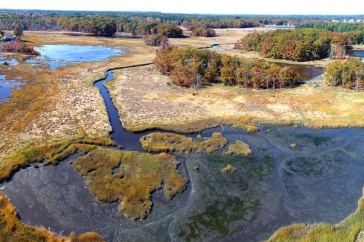We don’t pahk the cah anymore. That’s at least one of the conclusions coming out of a multi-year study about changes in New Hampshire dialect led by assistant professor of linguistics Maya Ravindranath.
Traditional linguistic atlases for New England describe a single “dialect region” that runs from Rhode Island to Maine and from the edge of New Hampshire to the far Vermont border. When Ravindranath moved to New Hampshire from Pennsylvania in 2009, the sociolinguist immediately recognized that there were many ways in which New Hampshirites did not sound like traditional New England speakers—particularly in being significantly less likely to drop their ‘r’s. Thus began a study to measure New Hampshire subjects’ dialect and whether the tendency toward the traditional New England pronunciations (think “bother” versus “father”) is changing over time.
Terming the study The New Hampshire Language and Life Project, Ravindranath enlisted undergraduates to interview locals and document the presence and frequency of traditional New England speech features. Subjects were divided into three age groups—18-22, 22–59, and over 60 years old. To control for outside linguistic influence, only individuals who had lived in the region since at least age seven were included. In a survey of 28 subjects in the Exeter area, Melanie Platt ’15 found that all speakers in her 60+ age group exhibited traditional New England speech features, and all younger speakers did not. Her results corroborated what Ravindranath’s other students had found: a linguistic change is occurring right now in New Hampshire.
To get at the whys, Ravindranath is now overseeing a follow-up study with PhD student Marino Fernandes and the UNH Earth Systems Research Center’s Michael Routhier, to assess attitudes towards speech. Using a map of New England, researchers ask subjects to circle the area where they think people sound like them and where people have other distinct speech features. They then ask how pleasant the speech is in each circled region—and how correct. Results indicate that New Hampshire speakers in the southeast, where most of the data has been collected, tend to distance themselves from the speech of both Boston and Maine and ally themselves with Vermont. “There’s a belief that we speak correctly here, as do people from Vermont, which makes
me think there may be a convergence to the supra local, moving away from things that seem regional towards some of kind of general American speech,” Ravindranath says.
Ravindranath has presented two conference papers on her research, one a collaboration with professor James Stanford of Dartmouth College, who is doing similar work with his students in the Hanover region. But some holes exist in the research that Ravindranath is eager to address. She doesn’t have enough data from northern and central New Hampshire to draw a complete picture of the state, and she'd like to collect more stories from residents about how New Hampshire has changed in their lifetimes to better understand the relationship between social and linguistic change.
Originally published in UNH Magazine—Winter 2015 Issue
-
Written By:
Susan Dumais '88 '02G | College of Liberal Arts

















































